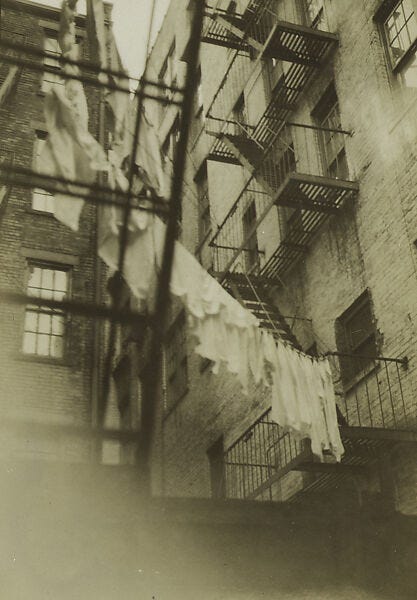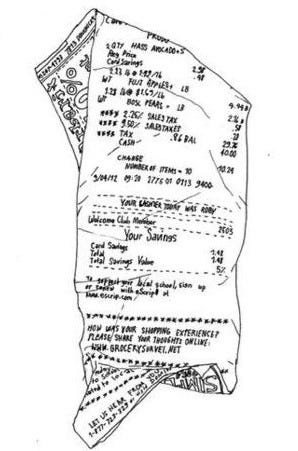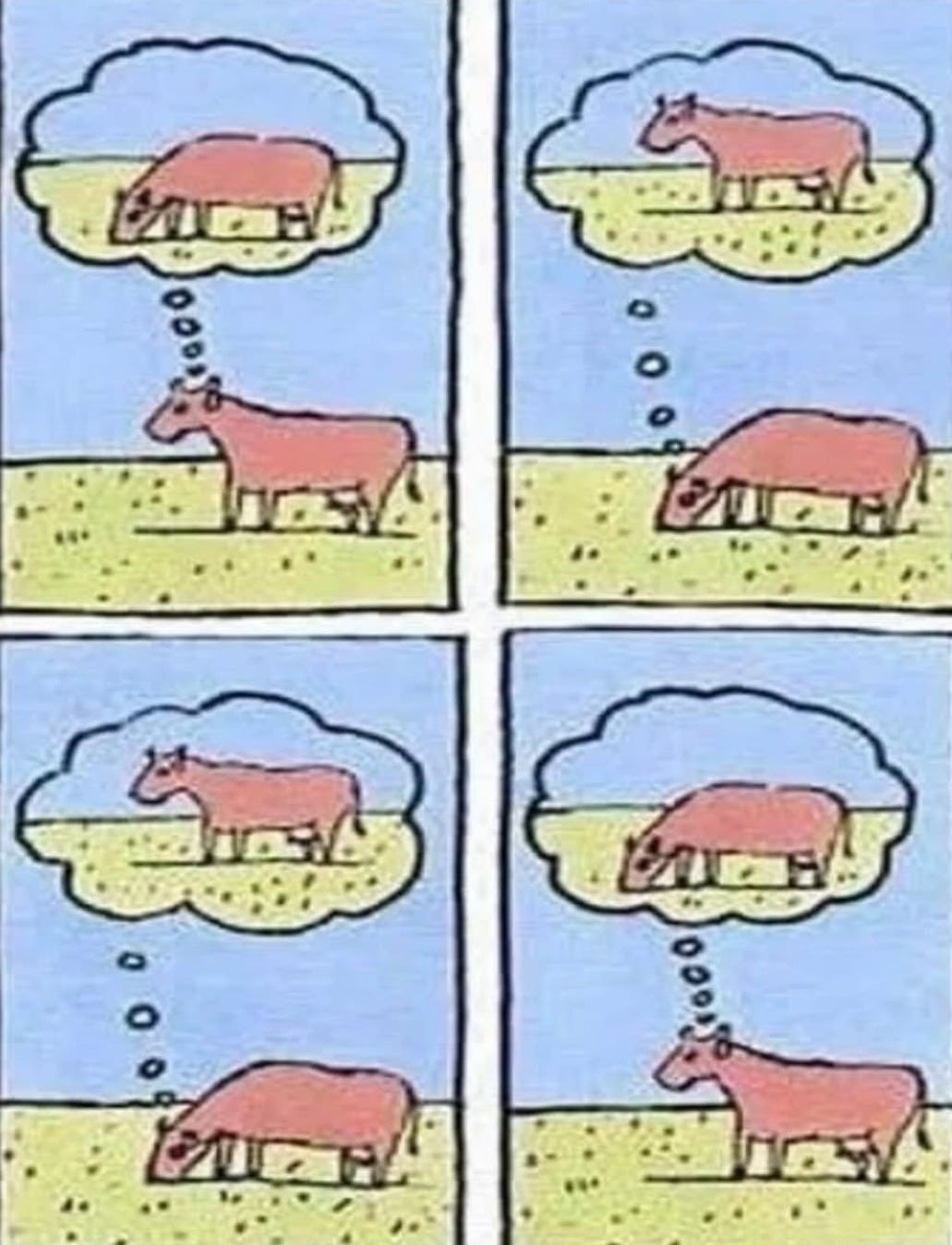I open my front door and glance down. Another meal prep box sits at my feet. I return it to its rightful owner, the downstairs apartment. The first chore of many today.
On my way to the grocery store, a delivery bike carrying precious overpriced cargo—someone’s soggy breakfast burrito—cuts me off.
My grocery store is chaotic. The aisles are too narrow for someone to comfortably pass through wearing a puffer; the stench near the meat section is an all-out assault on the senses; and it’s always the cashier’s first day on the job, no matter which register I choose.
I could outsource this weekly chore. I could pay an anonymous third party to bring me my preferred food items. I could skip the hunt entirely and become the elusive coddled customer—ah, well, now it’s my turn to pay for my groceries. Maybe next time.
I head to the laundromat next, where the majority of the machines in use are for wash-and-fold. It’s me, two other customers, and one overworked employee (the usual). I break a ten, retrieve my smelly quarters, and start a load. I’ve been coming here for two years now and the ambiance is unparalleled; I repeatedly find myself gazing pensively upon the faded poster print of Shawn Mendes as if it’s a sacred shrine to the Virgin.
I pass the remaining time strolling around the park, where I see a package delivery man hustling from door to door, nearly knocking into a girl glued to Google Maps. The incident leads me to wonder about what’s gained and lost from a surplus of shortcuts. These time-saving efforts, when aggregated, seem to take more than they give. I think about the consequences of a frictionless life. Surely there are benefits to chores, to drudgery.
For one, the mundane activities I complete out in the world make me feel more connected to the real, the physical: picking up a book from the library. Navigating from memory. Opting to walk to Walgreens instead of opening Amazon. It gives me some loose semblance of solidarity or community, even—after all, I have more in common with the auntie in the laundromat than the influencer live-streaming from Coachella. Manually doing my laundry, to me, is “touching grass.”
Places like the laundromat or the grocery store are great equalizers: social status, connections, and job title are worth naught. No one’s trying to establish themselves as the authority on workout routines or summer wardrobe staples because we’re more concerned with satisfying to-do lists that have been around since the dawn of mankind. I am not above a chore because the luxury of convenience is available to me—there exists large swaths of the population who have less than me, and sometimes that needs reminding by touching the dirty quarters and existing among the Instagram-indifferent.
Second, there’s happiness to be found in the humdrum. Chores are a reliably screen-less endeavor, making them prime opportunities for deep thought and appreciation for the little things in life. As Buddhist Thich Nhat Hahn illustrates in “The Miracle of Mindfulness”:
There are two ways to wash the dishes. The first is to wash the dishes in order to have clean dishes and the second is to wash the dishes in order to wash the dishes.
If while washing the dishes, we think only of the cup of tea that awaits us, thus hurrying to get the dishes out of the way as if they were a nuisance, then we are not “washing the dishes to wash the dishes.” What’s more, we are not alive during the time we are washing the dishes.
In fact we are completely incapable of realizing the miracle of life while standing at the sink. If we can’t wash the dishes, the chances are we won’t be able to drink our tea either. While drinking the cup of tea, we will only be thinking of other things, barely aware of the cup in our hands. Thus we are sucked away into the future – and we are incapable of actually living one minute of life.
Dusting the baseboards, clearing the fridge, weeding the flowerbeds—I’m trying to channel my inner Buddhist. (Admittedly, my success rate is low as of late, but I’m getting word that it’s life-affirming.)
Third: override auto-pilot mode. Witnessing a near-collision on the sidewalk is amusing, albeit in a sad way. I am acutely aware that my phone reliance doesn’t sharpen my navigational skills, improve my perception, or implore me to think critically—it causes atrophy. Literally. In writing this, I learned that navigation aptitude, specifically, peaks around age 19, further strengthening my resistance to an over-reliance on shortcuts. If getting to the gym without a GPS or crafting a delicately worded text without employing ChatGPT have to be framed as vital acts toward mental preservation, then so be it. People joke about cortisolmaxxing—spiking one’s cortisol levels by doomscrolling, multitasking, avoiding silence, etc.—yet we find ourselves trapped in a heightened, anxious state most afternoons. The antidote is embracing the inconveniences that force a slower, more intentional pace of living.
How we spend our days is how we spend our lives, and I want mine spent manually engaging with the world—collecting vignettes of the sights, scenes, and saints I’d otherwise miss: the sweaty meat aisle; the warm, sudsy water; the shrine of Shawn Mendes. In the friction—because of the friction—I find presence, engagement, and connection. I find myself.
A soundtrack for your next batch of chores:
Godspeed,
lanie
♡ PS: Know any cool girls in search of a room in Brooklyn? I have a two-month option (2B, 1B available now) and an up-to-12-month option (2B, 1B +1 guest room available in June), both $1600/mo. Message for deets. ♡






